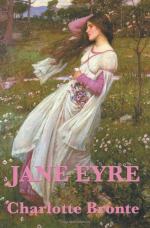|
This section contains 3,794 words (approx. 13 pages at 300 words per page) |

|
The Colonial Implications in Jane Eyre and Great Expectations
"It should not be possible to read nineteenth-century British literature, without remembering that imperialism, understood as England's social mission, was a crucial part of the cultural representation of England to the English." (Spivak, 1985, p, 12) Can these claims of Spivak be applied to Charles Dickens' Great Expectations and Charlotte Bronte's Jane Eyre and to what extent do these novelists draw from the colonial discourse in their representation of the `non- Western world'"
The Victorian novel has performed an important service in Eurocentric epistemologies and colonial ideologies in formulating the colonial discourse and establishing the alterity of `self' and the `Other'. Both Great Expectations and Jane Eyre, like most novels produced in the Victorian period, contain colonial subtexts and form a significant part of the cultural discourse of the empire. Moreover, both Jane Eyre and Great Expectations derive greatly from the imperial discourse in their stereotypical ways of representing the...
|
This section contains 3,794 words (approx. 13 pages at 300 words per page) |

|


